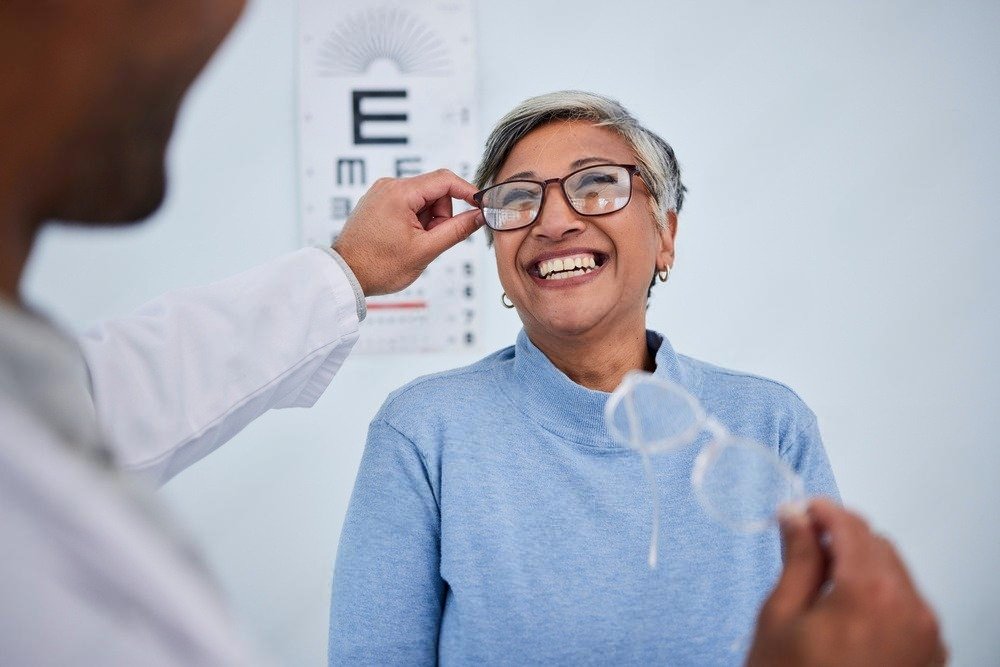Cataract is a common eye condition, especially as people age, that leads to cloudy vision and can severely impact daily activities. Early detection and treatment are crucial for maintaining healthy eyesight. Thanks to advances in healthcare, cataract screening can now be performed in the comfort of your home, eliminating the need for hospital visits in many cases. But how do these two screening options compare? Let’s explore the key differences between cataract screening at home and in a hospital setting to help you decide which option is best for you.
Cataract Screening at Home
Cataract Clinics in Hyderabad offers revolutionary home screening services, designed for convenience, comfort, and efficiency. Here’s what makes it stand out:
1. Convenience
One of the biggest advantages of home screening is convenience. No need to arrange transportation, endure long commutes, or wait in crowded hospitals. A qualified ophthalmic technician will visit your home at a pre-scheduled time, carrying all the necessary equipment for a comprehensive eye check-up.
2. Personalized Attention
With home screening, you receive one-on-one attention from the technician or specialist, free from the distractions of a busy hospital. This personalized approach allows for thorough discussions about your vision concerns and a more tailored consultation. You get ample time to ask questions in a calm, familiar environment.
3. Comfortable Environment
Home screenings take place in the comfort of your own home, which can be especially beneficial for elderly patients or those with mobility issues. You can relax in a familiar setting, making the screening experience less stressful.
4. Same Professional Accuracy
Our home screening services provide the same level of professional accuracy as you’d receive in a hospital. The technician will perform a visual acuity test, dilated eye exam, cataract grading, and IOL measurements (if required), ensuring a precise diagnosis of your cataract condition.
5. Time-Saving
With hospital visits, you might spend hours in the waiting room, but a home screening is typically completed in less than an hour. This saves both time and energy, making it especially convenient for those with busy schedules.
6. Safety
For patients concerned about exposure to illnesses in crowded spaces, home screenings offer a safe alternative. There is minimal contact with others, reducing the risk of infection and ensuring your health is a top priority.
Cataract Screening at Hospital
While home screening services are gaining popularity, many patients still prefer traditional hospital screenings for various reasons:
1. Access to Advanced Diagnostic Equipment
Hospitals often have access to more advanced diagnostic equipment, which can be beneficial in complex or challenging cases. Specialized machines such as slit lamps, advanced OCT (Optical Coherence Tomography) scanners, or corneal topographers are available in hospital settings, enabling a deeper analysis of your eye condition if needed.
2. Immediate Consultation with an Ophthalmologist
At a hospital, you’ll have direct access to an ophthalmologist who can diagnose and provide immediate feedback. If your cataract is advanced or requires urgent treatment, an in-person hospital visit may allow for quicker decisions regarding surgery scheduling and further tests.
3. Handling Complex Cases
If you have other underlying eye conditions like glaucoma, diabetic retinopathy, or retinal disorders, hospital screenings provide access to comprehensive care. The presence of multiple specialists in a hospital allows for quicker collaboration and more advanced treatment planning.
4. Familiarity with Traditional Medical Setting
Some patients feel more comfortable with the traditional hospital environment where they have access to full medical resources. A hospital visit may provide peace of mind, knowing that all facilities are within reach in case any other health issues arise.
5. Follow-Up Care and Tests
In a hospital, all follow-up tests, such as pre-surgery assessments or other related diagnostic procedures, can be scheduled and performed in the same place. For patients who prefer everything to be done at one location, this can be a more seamless experience.
Home Screening vs. Hospital: Which Should You Choose?
Both home screening and hospital-based cataract screening have their benefits, and the decision ultimately comes down to personal preference and your specific healthcare needs. Here’s a quick comparison to help you choose:
| Feature | Home Screening | Hospital Screening |
| Convenience | High – No need to travel | Moderate – Requires transportation, waiting |
| Comfort | High – Done in the comfort of home | Moderate – May involve longer wait times |
| Accuracy | High – Same professional diagnostic tools | High – Advanced hospital-grade equipment |
| Access to Specialists | Lower – Initial screening by technician | High – Direct access to ophthalmologists |
| Time Efficiency | High – Shorter, scheduled visits at home | Lower – Waiting times at hospitals |
| Safety | High – Minimal exposure to other patients | Lower – Potential exposure in a crowded place |
| Handling Complex Cases | Lower – For standard cataract cases | High – Best for cases with other eye conditions |
Why Choose Cataract Clinics?
At Cataract Clinics in Hyderabad, we understand that everyone’s needs are different. That’s why we offer both home cataract screening and hospital-based screenings, allowing you to choose the option that suits your lifestyle. Whether you prefer the convenience of home care or the traditional hospital setting, our expert team ensures that you receive the best cataract care in the city.
Conclusion
Cataract screening is essential for early detection and treatment. Whether you choose home screening or a hospital visit, Cataract Clinics offers comprehensive, expert care tailored to your needs. Contact us today to schedule your screening and take the first step toward clearer vision.


